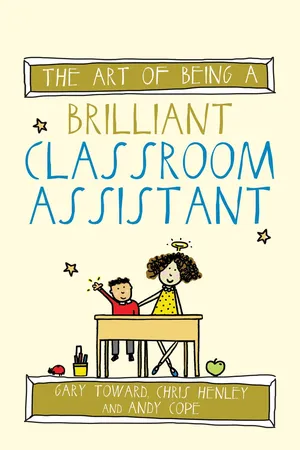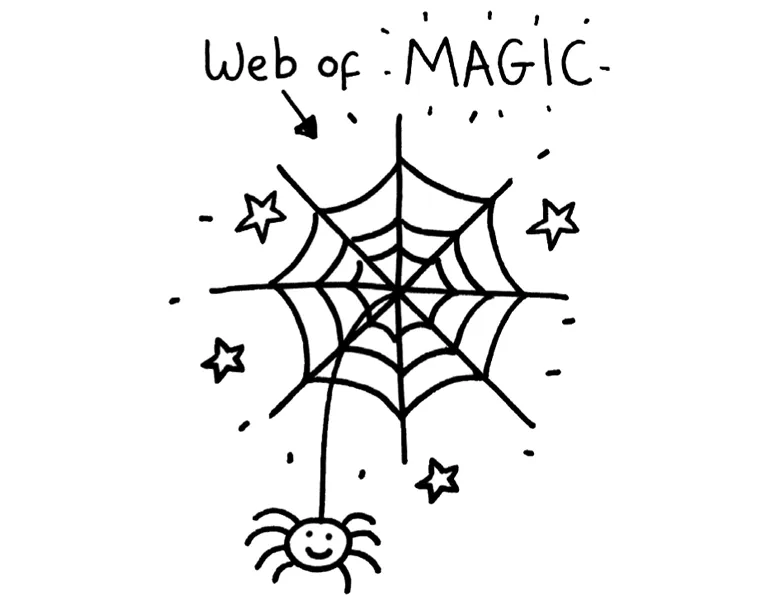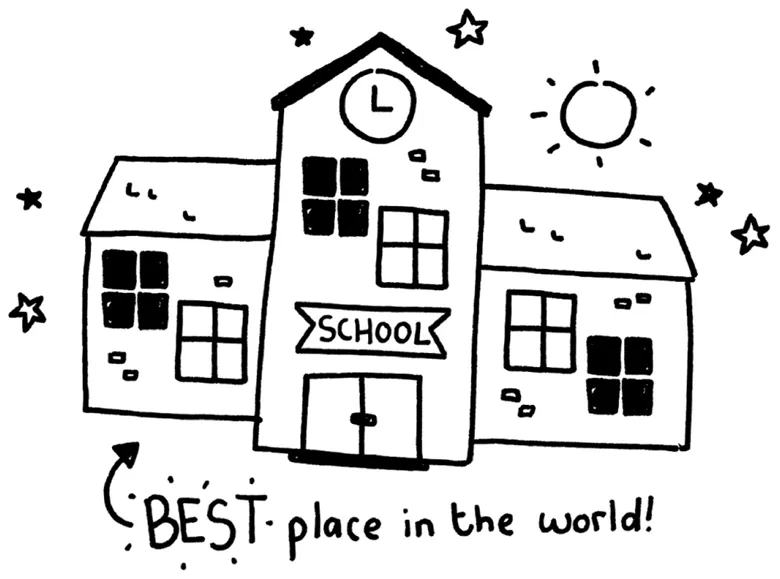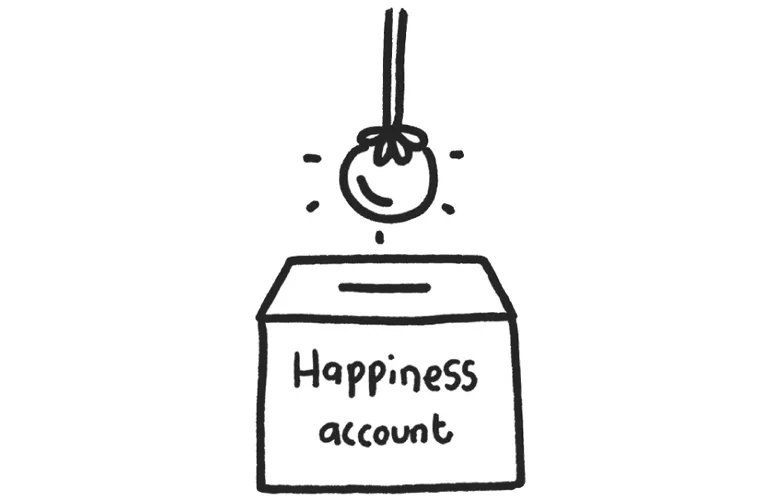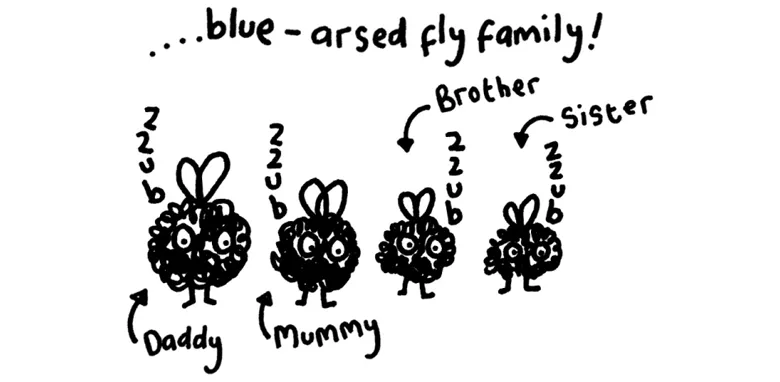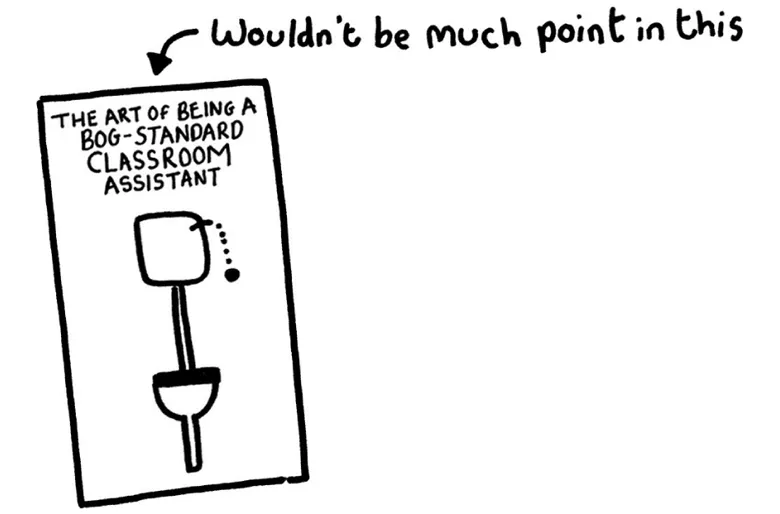Lesson 1
JOB, CAREER OR CALLING?
Hell, there are no rules here – we’re trying to accomplish something.
Thomas Edison
Chris and Gary have a combined seventy years of teaching experience or, put differently, they have clocked up 50,000 lessons between them. And then there’s our writing buddy, Andy – ‘Dr of Happiness’ no less – who has 400 school visits under his belt, some of which have been in far off lands. Now, we could wax lyrical about the highs and lows of our kaleidoscope of lessons, in which we have taught subjects as diverse as design technology and French, literacy and drama to kids from primary through to A level, but that is not the purpose of this book.
Put simply, we’ve had a ball. It has been a joy to be able to wake up every morning and look forward to going to work, rubbing shoulders with some amazing people along the way. The vast majority of the children have been fantastic. Talk about a kaleidoscope; there couldn’t have been a more colourful or diverse bunch. We’ve loved them all – yes, even the most challenging ones. How we wish we had made a note through the years of all the characters we’ve met. Then there are the staff: yes, we use the term ‘staff’ deliberately because a school is about far more than just the teachers. A successful school has a team of incredibly dedicated people at every level. Teachers cannot possibly weave their web of magic without the contribution of the estate management staff, the admin team, reception staff, lunchtime supervisors, IT technicians and the head teacher.
Awesome schools are a thriving community with brilliant staff in all these roles. But there’s one area that we feel is especially important – a cog without which the wheels on the school fail to go round and round. A team who have such a tough role but who can make such a massive difference to the learning and well-being of the children. What’s more, these individuals can also add sparkle to the classroom and can help breathe health and vitality into the teachers around them. Yet, despite their potentially life changing importance, this is a group which is often undervalued, underpaid and underappreciated. As you have already learned, they don’t even have a patron saint.
Our task in this book is to share our enthusiasm, as well as our zeal and zest, with those of you who are the unsung heroes of modern day education: the humble classroom assistants. And we say ‘humble’ deliberately, because you generally are. Let’s lay our cards on the table at the outset: there’s a big fat chance that you are undervalued by the school community. Plus, there’s also a fair-to-middling probability that you are underestimating your own importance. The role of the classroom assistant has been massively downplayed, so we want to raise your knowledge and confidence towards the upper echelons of ‘world class’. We want to get you excited about being a classroom assistant.
You have probably already cottoned on to the idea that we believe that schools are among the best places in the world, and that working in a school is truly magical. However, the days are long and there’s no doubt that your job can be physically and emotionally exhausting. We won’t pretend otherwise. We sometimes liken the job of teaching kids to one of those super hand dryers you come across in smart hotels – you know, the ones which almost drag your fingernails out of your finger ends with the powerful rush of air. You have to look away because everything’s flapping. There is a huge expenditure of energy. Whether you are a teacher or a brilliant classroom assistant, you will go home at the end of the day feeling drained. But there’s ‘good’ and ‘bad’ exhaustion. Bad exhaustion is when you get home having lost a few battles, slump wearily into a chair and wonder why you bothered becoming a classroom assistant at all. Good exhaustion is to slump into your chair with a cuppa and a wry smile on your face because you’ve made a difference.
This feeling of genuinely making a difference is a really big deal. In the hurly-burly of the modern school, classroom assistants can sometimes simply forget the power of their influence. So this book is a cold flannel in the face of a reminder. The chances are that you are not in it for the money because, let’s face it, there are quicker ways to get rich. But if we expand the concept of ‘rich’ away from your bank balance and towards wealth in the widest sense of the term, the feeling of making a difference is a massive credit to your happiness account.
We want you to puff out your chest with pride, as well as defend the profession that all too often outsiders attempt to denigrate. It was our recent good fortune to take a taxi in London on our way to a conference where we were to be keynote speakers. Now, you may think that riding in a black cab is not necessarily right up there in terms of the thrills and spills of life, but as a couple of teachers from Leicester, Chris and Gary got a bit excited. The cabbie was one of those affable guys who likes to engage with his passengers. He enquired as to what had brought us down to the great metropolis, so we explained that we were teachers.
Those of us who work in education know that in any social setting, the mere mention of schools or teaching is an open invitation to whoever we are with to share their thoughts on education. After all, we’re all experts – we all went to school, didn’t we? So, the floodgates of conversation opened and we were treated to his own personal diatribe on schools and kids today. His perception was pretty much fed by the usual media stereotypes: things aren’t as good as they used to be, they aren’t as good as they could be, young people are running riot and other countries do it much better than we do. It seems to us that, over all our years of experience, the same narrative seems to have informed pretty much every secretary of state for education as well.
Forgive us for being a bit tetchy on the subject, but it is our natural instinct to ask when exactly was this golden age of education when everything was so much more rosy? Can someone please tell us when were these heady days of no one misbehaving in class and everyone leaving with a Shakespearean grasp of English literature and a Newtonian understanding of the laws of physics? Forsooth, don’t believe the propaganda. Young people were challenging us thirty years ago, they are still testing us now and they will continue to push the boundaries of authority in thirty years’ time. That’s what young people do.
Society seems to have morphed such that the modern family resembles a cohort of blue-arsed flies, buzzing around like crazy. As life has speeded up, so jobs have changed and technology has muscled its way to centre stage, which has in turn affected norms of behaviour. Today’s generation of children are pushing different boundaries to those of the generations before them. We find that some school staff agree with the taxi driver that schools were better back in the day. Whatever the rights and wrongs of that argument, our point is that those days are gone.
Whether ‘change’ is good or bad is a moot point. We are here, now, and we have to deal with the education system and society as it really is, not how we’d like it to be. If the challenges of education have moved on then so must our thinking and techniques. So, the focus of this book is not only about changing the education system but also tweaking ourselves. And speaking of change, we’ve noticed that the standard of all of the school staff we work with is becoming better and better. And this is what really matters.
The national discourse about education has operated at many different levels over the last fifty years or so. We have expended shed loads of energy on discussing the structures of schooling at secondary level. Would it be more advantageous to have grammar schools, comprehensive schools, grant maintained schools, free schools, academies …? The list goes on. As a country we have invested mega millions in buildings in the belief that shiny new glass and steel schools will provide a better learning environment. We have seen wagon trains of gleaming new curriculum and assessment bandwagons roll into town and then, in due course, roll out again. But it can be difficult to demonstrate empirically that any of this has made a difference.
We don’t think we can make it any clearer than this: donning our ‘good old days’ rose-tinted spectacles does us no favours at all. Those days, if they ever existed at all, are long gone. Continuing to hang on to them will stop us fully functioning in the present. So, rather than argue about whether the current system is good or bad, let’s stick with an age-old truth: once the lesson has started the name of the game has not changed. It is the quality of that interaction between the children and those leading the learning which determines how good the outcomes will be.
Meanwhile, back in the taxi, we are due to be on the conference platform in about twenty-five minutes. Traffic around Trafalgar Square is almost stationary and yet, despite him knowing the London streets like the proverbial back of his hand, we sit stalled in the traffic, defending our profession. Interestingly, although we were bursting to tell him that the standard of taxi driving has declined in the last ten years, and that last time we were here our taxi driver took a short cut and was incredibly polite, we resisted. It would have been rude and we are professionals after all.
As we sat in the traffic jam we had time to reflect on our time in education and agreed that one of the biggest innovations in the last ten years has been the arrival in schools of classroom assistants. And hurrah, what a refreshing revolution it’s been. At the outset of our illustrious careers there was no such thing – classroom assistants literally had not been invented. There was one teacher and a mass of kids (gulp). It was sink or swim. But classroom assistants are here, and are here to stay, so this book has been designed to help all of those who carry out this vital role to be not just ordinary professionals on the periphery of the learning process, but central players in creating a world class learning environment.
We use the term ‘classroom assistant’ to cover a wide range of specific titles that are never ending and ever changing. However, they all have a role in the classroom which is different to that of the teacher, and it is that function we explore in the following pages.
The best and most brilliant classroom assistants make a huge difference to the children’s learning, so the task in this book has been to unpick all the threads in the tapestry to enrich and inspire all those who aspire to be the very best version of themselves they can possibly be. You might be baulking at the fact that we have set our sights so high. ‘Brilliant’ is not for the faint-hearted and, let’s face it, it’s a whole lot easier to be mediocre. But we reason that there wouldn’t be much point in expending all our energy in writing a book called ‘The Art of Being a Bog-Standard Classroom Assistant’. If we’re going to embark on this journey together, let’s be big and bold and aim for the very top – because if we don’t do that, we would be letting the children and ourselves down.
If you asked a standard person on the Clapham omnibus what a classroom assistant does, you would probably get an...
